Day 3 — Monday, Dec. 8
All times are Mountain Standard Time.
Display Preferences
Hide/Show
8:30 a.m.–9:00 a.m. | Room 224 | General
Respiratory Diagnostics Section Meeting
Kenneth Harker, RRT, RPFT
Show description
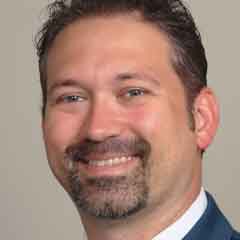
Section members meet to determine their needs and priorities, as well as how to use AARC resources to accomplish them. All Congress attendees, including section non-members, are invited to attend and participate.
8:30 a.m.–9:00 a.m. | Room 222 | General
Neonatal and Pediatrics Section Meeting
Emilee Lamorena, MSc, RRT, RRT-NPS
Show description

Section members meet to determine their needs and priorities, as well as how to use AARC resources to accomplish them. All Congress attendees, including section non-members, are invited to attend and participate.
8:30 a.m.–9:00 a.m. | Room 226 | General
Sleep Section Meeting
Amanda Leightner, PhD, RRT, RRT-SDS, RPSGT, CCSH, FAARC
Show description

Section members meet to determine their needs and priorities, as well as how to use AARC resources to accomplish them. All Congress attendees, including section non-members, are invited to attend and participate.
9:00 a.m.–1:00 p.m. | North Hall C | General
Expo Hall Open
Show description
Don’t miss your opportunity to talk with and learn from the 2025 Congress exhibitors.
9:10 a.m.–9:45 a.m. | Room 222 | Neonatal/Pediatric
Bridging the Gap: The RT’s Role in Successful Transition Home
Michelle Drabish, MBA-HCA, RRT, RRT-NPS
Show description

Discharging a medically complex pediatric patient home is often an arduous task. Managing care once home and in the unfortunate event of re-admission can be equally, if not more, difficult. This lecture discusses how RTs can help bridge the gap through outpatient follow-up, care coordination and the electronic medical record.
9:10 a.m.–9:45 a.m. | Room 224 | Diagnostics/PFT
Cardiopulmonary Exercise Testing
Kenneth Harker, RRT, RPFT
Show description

This presentation will cover cardiopulmonary exercise testing (CPET) and how to perform it. It will also cover quality/biologic control and how to ensure your department is performing it correctly. Attendees will gain knowledge around the value of CPET testing.
9:10 a.m.–9:45 a.m. | Room 226 | Sleep
THC, CBD, and ZZZ: The Sleep Connection
Amanda Leightner, PhD, RRT, RRT-SDS, RPSGT, CCSH, FAARC
Show description

Attendees of this engaging session will uncover the fascinating relationship between cannabis and sleep. With a focus on THC and CBD, this presentation demystifies how these compounds interact with the body to influence sleep patterns, offering a science-based exploration of their potential benefits and risks. Participants gain valuable insights into the latest research, understanding how cannabis affects sleep onset, duration, and quality. This session equips attendees with knowledge to critically assess claims about cannabis as a sleep aid, distinguishing between evidence-backed findings and myths. Whether attendees are healthcare professionals, researchers, or curious individuals, they leave with a deeper comprehension of the mechanisms by which cannabis interacts with the endocannabinoid system to impact sleep cycles.
9:10 a.m.–9:45 a.m. | Room 229 | Post Acute Care
Managing the Breathless: A Clinical Approach to Chronic Respiratory Failure
Sara Mirza, MD, MS
Show description

Chronic respiratory failure affects many patients yearly. This session will focus on this complex condition with an emphasis on patient centered care based on a structured clinical assessment and management program.
9:10 a.m.–9:45 a.m.
Symposium
Prone Positioning during ARDS
9:10 a.m.–9:45 a.m. | Room 221 | Adult Acute Care
Prone Positioning during ECMO: Is There a Benefit?
Irene Telias, MD, PhD
Show description

Prone positioning is widely recognized in critical care, but its role in patients supported by Extracorporeal Membrane Oxygenation (ECMO) remains a topic of debate. This session takes a critical look at the physiological rationale and examines the existing evidence to determine whether prone positioning offers measurable benefits for ECMO patients.
9:55 a.m.–10:30 a.m. | Room 221 | Adult Acute Care
On the Road to ECMO: From Guidelines to Applied Physiology at the Bedside
Stefano Spina, MD
Show description
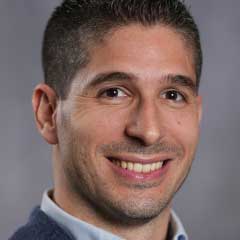
Patients with complex respiratory disease and unique physiology present challenges, and guideline-driven management may not achieve the goals of oxygenation and ventilation. The implementation of individualized strategies for monitoring and management is often the next step in the management of these patients. This presentation will explore the potential benefits of individualized mechanical ventilation strategies and the pragmatic and systematic implementation of these individualized approaches.
9:10 a.m.–11:15 a.m. | Room 227 | Clinical Practice
Open Forum Editor’s Choice
Richard Branson, MSc, RRT
Dean Hess, PhD, RRT, FAARC
Show description
- Comparison of the Influence of Nebulizer Position on the Delivery of High-Concentration Colistin, Drug Deposition, and Exhalation Filter Resistance in a Mechanical Ventilation System: An In Vitro Study — Hui-Ling Lin, Taoyuan, Taiwan
- Impact of a Tracheostomy Team Implementation on Length of Stay and Unplanned Decannulation — John Emberger, Newark, DE
- Attending Physician Presence During Respiratory Therapist Intubation Attempts — Andrew Almond, Durham, NC
- Carbon Dioxide Levels in Extremely Preterm Neonates ≤ 26 Weeks Gestational Age Ventilated With High-Frequency Jet Ventilation — Danielle Ben-David, Boston, MA
- De-Implementation of Bubble Humidification Used With Unheated Low Flow Nasal Cannula in Children — Heather Neal-Rice, Little Rock, AR
- Signal or Skin? Reassessing Pulse Oximeter Performance Through Perfusion and Pigmentation — Justin S. Phillips, San Francisco, CA
- In-Patient Sleep Screens Performed at an Academic Medical Hospital: A Descriptive Analysis — Lauren Harnois, Chicago, IL
Supported by an unrestricted educational grant from
9:55 a.m.–10:30 a.m. | Room 229 | Post Acute Care
Creating Remote Telemonitoring and Telehealth Programs for the RT
Charles Atwood, MD
Show description

Since the COVID pandemic, remote monitoring and telehealth has gained a very prominent role in the development of diagnostic and therapeutic programs for patients. The respiratory therapist plays a key role in these programs. This session will discuss various opportunities for the respiratory therapist in the development and implementation of remote monitoring and telehealth programs.
9:55 a.m.–10:30 a.m. | Room 224 | Diagnostics/PFT
Breathing New Life into PFT Labs: Ensuring Quality Standards
Jamie Markham, RRT, RRT-NPS, RPFT
Show description

Many PFT technicians are uncertain about the necessary steps to align their labs with ATS standards. This informative lecture will cover the key essentials to enhance the quality of your testing procedures and Quality Controls, ensuring your lab delivers accurate, high-quality results so that your patients receive the best care possible.
9:55 a.m.–10:30 a.m. | Room 222 | Neonatal/Pediatric
Proposing a Theory of Caregiver Competency
Michael O’Brien, RRT, RRT-ACCS, RRT-NPS, RRT-SDS, RPT, AE-C
Show description

Parents whose children with tracheostomy or ventilator dependency must learn to manage life-sustaining equipment, yet there is no unifying theory of how to determine when caregivers have adequately demonstrated knowledge or competency in the management of this equipment. Caregiver education varies from institution to institution, making it difficult to collate the lessons learned from mistakes or the efficacy of instruction methods. This lecture will propose a theory of caregiver competency based on the technological needs of the child and will propose exercises to facilitate the observation of behaviors so that knowledge and hands-on skills can be assessed by educators.
9:55 a.m.–10:30 a.m. | Room 226 | Sleep
Respiratory Therapists in Sleep Labs Improve Patient Outcomes
Meliza Walsh, RRT, RRT-NPS, AE-C
Show description

The integration of a respiratory therapist into the development of a successful sleep disordered breathing program is essential in the provision of care for a child or an adult with a sleep disorder. This session will focus on the use of respiratory therapists in such settings with an emphasis on pediatric sleep laboratories.
10:40 a.m.–11:15 a.m. | Room 221 | Adult Acute Care
Pro/Con: Aerosolized Hypertonic Saline For All Mechanically Ventilated Patients
PRO: Brian Ring, PhD, MSc, RRT
CON: Mike Davis, RRT, PhD, FAARC
Show description

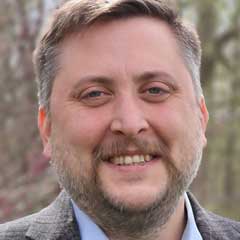
Hypertonic saline (HTS) has long been used to induce sputum in non-ventilated subjects. In recent years, 3%, then 7% and now 10% HTS is routinely used as a wetting agent or semi-mucolytic in all ventilated patients. Does the evidence support routine use and is this practice justified? HTS is inexpensive, safe and has few contraindications, its use is easily justified.
10:40 a.m.–11:15 a.m. | Room 224 | Diagnostics/PFT
Controversies in Spirometry
Carl Mottram, RRT, RPFT, FAARC
Show description

Spirometry results have been utilized in characterizing lung diseases for centuries. Recently the ATS-ERS have supported changes which have resulted in confusion and uncertainty. The lecture will review three of these controversial subjects, which include bronchodilator response; the impact of race-neutral reference equations; and the use of percentage of predicted, LLN and z-scores.
10:40 a.m.–11:15 a.m. | Room 226 | Sleep
Metabolism and Sleep: How GLP-1s and Other Medications are Treating OSA
Jessica Schweller, MS, APRN-CNP, RRT-SDS, AE-C, CCSH
Show description

As more and more patients become aware of sleep apnea, clinicians are finding more and more tools to offer as treatment. CPAP is still a gold standard when it comes to treating sleep apnea, but this does not treat the underlying cause. Obesity is one of the main causes of sleep apnea and the FDA has approved medication for the first line treatment of OSA while also treating a possible cause: obesity. This lecture will explore the metabolic process that occurs during sleep and how these medications are making their way onto the market as treatment options for OSA.
10:40 a.m.–11:15 a.m. | Room 222 | Neonatal/Pediatric
The Humanized ICU
Lauren Sorce, PhD, RN, CPNP-AC/PC, FAAN, FCCM
Show description

This lecture on the humanized pediatric ICU will delve into how patients and families experience the ICU as customers of healthcare services. The session will include results from a qualitative study, information on ICU design, and contributions to ICU considerations including delirium, interdisciplinary staff collaborations, and maximizing patient outcomes.
10:40 a.m.–11:15 a.m. | Room 229 | Post Acute Care
There’s No Place Like Home: Safe Discharge with a Trach/Ventilator
Christina Stevens, RRT, RRT-ACCS
Show description

Planning for the discharge of a patient with a tracheostomy or home ventilation presents many challenges. This session will focus on understanding those factors associated with such planning, including equipment concerns, safety protocols, and medications using a multidisciplinary approach.
11:25 a.m.–12:00 p.m. | Room 226 | Sleep
Management of Sleep Disorders in the Future Using Telehealth Technology
Charles Atwood, MD
Show description

This session will focus on the development and use of telehealth services for patients with sleep disorders. Telehealth services offer the ability to connect a patient with a provider given the issues with face-to-face visits for many.
11:25 a.m.–12:00 p.m. | Room 229 | Diagnostics/PFT
COPD Exacerbations: Prevention and Treatment, What is the Evidence?
Gerard Criner, MD, FACP, FACCP
Show description

This session will focus on the patient with an acute COPD exacerbation. Prevention and therapy for exacerbations has evolved over the last two decades. Emphasis on an evidence-based approach to the management of a patient with acute exacerbation will be made.
11:25 a.m.–12:00 p.m. | Room 227 | Adult Acute Care
Health Impacts of Wildfire Smoke
Asha Devereaux, MD, MPH
Show description

Changes in climate around the world have resulted in significant impacts on human health. In 2024, wildfires raged in California, Hawaii and the Northeast. The acute effects of smoke inhalation on health are well known, but the impact of particulate matter in the air on patients with chronic lung disease and reactive airway disease also represents a hazard. The long-term effects on population health are only now beginning to be educated. This lecture will help attendees understand the many effects and impact of wildfire smoke on chronic lung disease patients.
11:25 a.m.–12:00 p.m. | Room 222 | Neonatal/Pediatric
Advances in Neonatal Noninvasive Support
Rob DiBlasi, PhD(c), BSRT, RRT-NPS, FAARC
Show description

Avoiding invasive ventilation can minimize lung injury and inflammation in neonatal patients. Different nasal interfaces and non-invasive respiratory support devices can be employed to prevent intubation or support patients following extubation. Experimental evidence acquired from clinical trials and physiological studies from the last decade has evolved and advanced clinical management of neonatal noninvasive support. This lecture will review the literature and focus on the clinical management and optimization of noninvasive support for neonates.
11:25 a.m.–12:00 p.m. | Room 221 | Adult Acute Care
The Potential Role of PEEP in Ventilator Weaning and Liberation
William LeTourneau, MA, RRT, RRT-ACCS, ATSF
Show description

In critically ill patients, the method for determining the optimal level of PEEP limits intratidal decruitment and provides the best oxygenation and compliance, while avoiding hemodynamic compromise, is elusive and debated. Another potential indication and clinical goal for the personalization of PEEP may be to positively affect spontaneous breathing and the ventilator liberation process. This presentation will discuss the evidence and potential ways in which PEEP may be adjusted to impact spontaneous breathing and liberation from mechanical ventilation.
11:25 a.m.–12:00 p.m. | Room 224 | Diagnostics/PFT
Interventional Pulmonology Airway Diagnostics: Advanced Techniques
Angela Sherman, BS, RRT, RPFT, RRT-ACCS
Max Wayne, MD
Show description


Interventional pulmonology is a subspecialty in the field of pulmonary medicine which offers advanced minimally invasive procedures to diagnose and treat disorders of the lungs and airways. During this session, advanced diagnostic techniques including robotic navigational bronchoscopy, cryo-biopsy, and endobronchial ultrasound will be provided with an emphasis on the implementation of respiratory therapists into program development.
12:00 p.m.–1:55 p.m. | Room 121 | Leadership & Management
Open Forum #8 — Management Part 1
Show description
Researchers present the results of their work. Authors briefly present their findings and engage in an open discussion with the attendees.
Supported by an unrestricted educational grant from
12:00 p.m.–1:55 p.m. | Room 122 | Education
Open Forum #9 — Education Part 1
Show description
Researchers present the results of their work. Authors briefly present their findings and engage in an open discussion with the attendees.
Supported by an unrestricted educational grant from
1:05 p.m.–1:55 p.m. | North Ballroom | General
Flag Folding Ceremony
Victoria Bot, RRT
Joe Buhain, EdD, MBA, RRT, FAARC, CHSOS, CMSP, NREMT-B
Michael DePeralta, MBA-HCM, RRT
Felix Gregorian, MSc, RCL, RRT, Engineer
Wadie Williams, MS, RRT, TTS, FAARC, MEMS(S)
Show description
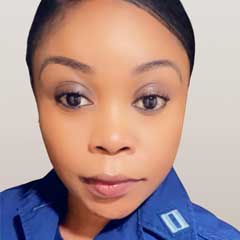
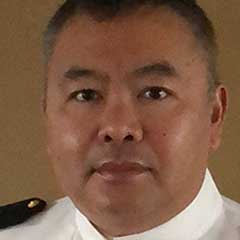

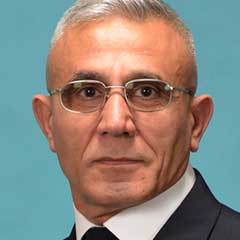
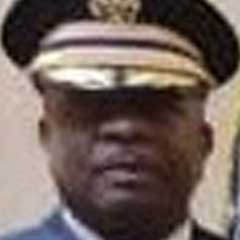
An AARC tradition like no other, attend the AARC Flag Folding Ceremony and celebrate the rich tradition of the U.S. Military and Armed Forces. RT veterans and active-duty respiratory therapists, Victoria Bot, MPH, RRT, Joe Buhain, EdD, MBA, RRT, FAARC, Michael de Peralta, MBA-HCM, RRT, RCP, Felix Gregorian, RRT, Wadie Williams, MS, RRT, FAARC conduct a moving ceremony as we recognize those who serve, those who have served, and those we have lost.
2:00 p.m.–2:50 p.m. | North Ballroom | Adult Acute Care
41st Phil Kittredge Memorial Lecture
Advancement in Personalized Respiratory Care
Michael Davis, PhD, RRT, FAARC
Show description

Recently identified mechanisms underlying asthma, cystic fibrosis, and other respiratory diseases suggest differences in pathophysiology and response to treatment based on specific phenotypes. This includes response to anti-inflammatories, bronchodilators and CTFR proteins which impact the degree of fibrosis in multiple organ systems. This presentation will discuss results from several large ongoing clinical trials, as well as new treatment and diagnostic modalities.
Sponsored by
3:00 p.m.–5:05 p.m.
Symposium
New Professionals Prep
3:00 p.m.–3:35 p.m. | Room 227 | Education
Success on the Therapist Multiple Choice Exam
Bill Galvin, RRT, CPFT, AE-C, FAARC
Show description
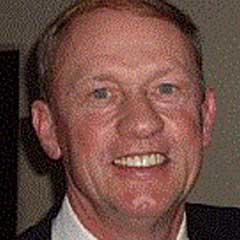
Major changes in credentialing are underway in 2026. This presentation will address the strategies for the current TMC before implementation of the “new” exam. While it will briefly address some of the upcoming changes, it will focus primarily on the factors that make for success in the TMC examination process. It will cover preparatory issues and what you will experience onsite as well as test-taking strategies and techniques.
3:45 p.m.–4:20 p.m. | Room 227 | Education
Success on the Clinical Simulation Exam
Bill Galvin, RRT, CPFT, AE-C, FAARC
Show description

In 2026 the NBRC will be implementing a “new” credentialing process that will eliminate the clinical simulation exam and create a single multiple-choice format. This presentation will be the last opportunity to address the clinical simulation exam format. It will address the factors that make for success on the Clinical Simulation Exam. It will cover such issues as exam content, structure, and unique strategies for progressing through a patient management type of exam.
4:30 p.m.–5:05 p.m. | Room 227 | Education
I’m a New Grad, and This is Scary!
Meliza Walsh, RRT, RRT-NPS, AE-C
Show description

You got a job, you passed your boards, and you are ready to take on the world! But that confidence quickly turns into anxiety during your orientation. Being a new grad is scary, and feeling like a new grad may last for a couple of years. Years?! Why didn't they teach me that in school? This lecture will discuss the good, the bad, and the ugly of your new career. But knowing what to expect will get you ready for a great career!
3:00 p.m.–3:35 p.m. | Room 229 | Leadership & Management
Evolving RT Leaders: Adapting to Industry Shifts
Julie Jackson, BAS, RRT, RRT-ACCS
Show description
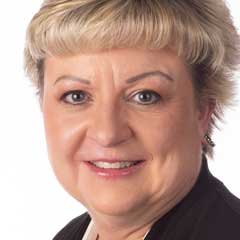
For respiratory care leaders, anticipating trends and adapting to industry shifts is imperative to success. The ability to forecast, adjust strategy, and identify possible risks related to industry change sets leaders up for operational success. This lecture will review strategies for forecasting, maintaining flexibility, and adapting to industry shifts.
3:00 p.m.–5:05 p.m.
Symposium
Enhancing Hospital-Based Education
3:00 p.m.–3:35 p.m. | Room 224 | Education
Beyond the Classroom: Mastering Skills in Educational Boot Camps
Andrew Klein, MS, RRT, RRT-ACCS, RRT-NPS, AE-C, FCCP, FAARC
Show description

Providing education to bedside practitioners has become increasingly challenging. Many respiratory therapists are self-described hands-on learners, which decreases the value of lecture-based education. Additionally, as our staff get younger, more emphasis is placed on shorter targeted educational events. This lecture will review current educational models and offer insight into providing “boot camp” style staff education that includes short didactic sessions with small group hands-on breakout activities. The structure and resources needed to provide these events, as well as collecting staff feedback and outcome metrics will also be discussed.
3:45 p.m.–4:20 p.m. | Room 224 | Education
Unlocking Potential: Training Therapists to Become Inspiring Preceptors
Laura Reindl, MS, RRT-ACCS, RRT-NPS
Show description

Clinical preceptors play a vital role in healthcare education. Unfortunately, many respiratory therapists receive very little training on how to be an effective preceptor. In this presentation we will discuss key components of preceptor training, including adult learning principles, assessment methods, and communication skills. We will highlight common challenges faced by preceptors and explore strategies to overcome them with the goal being to enhance the quality of clinical learning experiences for new hires and ultimately improve patient care.
4:30 p.m.–5:05 p.m. | Room 224 | Education
Building Feedback into Orientations: Scheduling Courageous Conversations
James Keith, BS, RRT, RRT‑NPS, RRT‑ACCS, AE‑C, CHSE
Show description
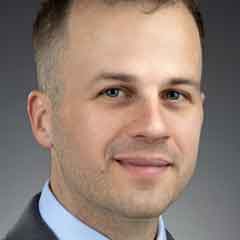
This presentation will discuss the benefits of building structured feedback time for RTs during department/new unit orientation. From new grads to seasoned RTs training in a new unit, timely and constructive feedback is essential. By building time into an orientation where feedback can flow in both directions, therapists and respiratory care departments can grow and thrive. Courageous conversations, while sometimes uncomfortable, lead to growth. Giving feedback and identifying useful ways to build it into orientation is essential so concerns do not go unaddressed.
3:00 p.m.–3:35 p.m. | Room 222 | Neonatal/Pediatric
Pro/Con: NRP or PALS in the NICU?
PRO: Emilee Lamorena, MSc, RRT, RRT-NPS
CON: Amanda Nickel, MSc, RRT-NPS, RRT-ACCS
Show description

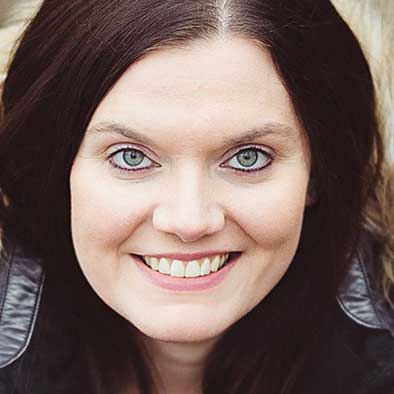
This pro/con will review the recommendations for resuscitation in the NICU. The presenters will debate the pros and cons of using the NRP guidelines exclusively versus a mixed approach, incorporating PALS in the neonatal intensive care unit.
3:00 p.m.–3:35 p.m. | Room 226 | Ethics
One Last Breath: Respiratory Therapist Involvement in End-of-Life Care
Kimberly McMahon, MD, MSHQS
Show description

Respiratory therapists frequently care for patients at the end-of-life; however, many indicate receiving little formal training in this area. Education on best practices can improve care for patients, families and respiratory therapist knowledge and coping. This lecture focuses on the history of end-of-life care, ethical principles, a literature review of respiratory therapist involvement in end-of-life care, expectations/anticipatory guidance and best practices for the respiratory management of end-of-life patients.
3:00 p.m.–4:20 p.m.
Symposium
Ventilator Weaning and Liberation
3:00 p.m.–3:35 p.m. | Room 221 | Adult Acute Care
Challenges in the Transition from Passive to Assisted Ventilation
Irene Telias, MD, PhD
Show description

This session addresses the complexities involved in transitioning patients from passive mechanical ventilation to assisted modes. Attendees will gain a deeper understanding of the physiological, technical, and patient-centered challenges and learn strategies to overcome these barriers to ensure optimal patient outcomes.
3:45 p.m.–4:20 p.m. | Room 221 | Adult Acute Care
Personalized Weaning Strategies
Karsten Roberts, RRT, RRT-ACCS, RRT-NPS
Show description

Weaning from mechanical ventilation in the acute care setting can present unique physiological and psychological challenges for certain patient populations, often resulting in prolonged and complex weaning that require organizational coordination of care. This lecture will focus on the barriers to successful weaning and tailored interventions to evidence-based approaches involved in weaning patients with COPD, neurologic and neuromuscular disorders, and patients with prolonged or long-term weaning from mechanical ventilation.
3:10 p.m.–5:05 p.m. | Room 121 | Leadership & Management
Open Forum #10 — Management Part 2
Show description
Researchers present the results of their work. Authors briefly present their findings and engage in an open discussion with the attendees.
Supported by an unrestricted educational grant from
3:10 p.m.–5:05 p.m. | Room 122 | Education
Open Forum #11 — Education Part 2
Show description
Researchers present the results of their work. Authors briefly present their findings and engage in an open discussion with the attendees.
Supported by an unrestricted educational grant from
3:45 p.m.–4:20 p.m. | Room 226 | Patient Safety
Proactive Patient Safety: Teamwork and Communication
Ira Cheifetz, MD, FAARC
Show description
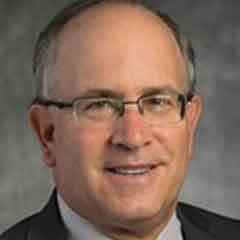
Patient safety transcends all aspects of respiratory care. Approaches to improve patient safety have transitionally been focused on reactions to adverse events to ensure such occurrences do not recur. A new strategy is to focus on what goes well to further augment the good and make adverse events less likely. Such an approach is generally termed proactive safety and requires true teamwork and effective communication. This session will focus on strategies and techniques that respiratory care departments can use in their ongoing journey toward zero harm and optimal patient safety. This interactive session will include real examples from the healthcare field as well as aviation to stress the key learning points. This presentation will include a wide focus to be beneficial for bedside practitioners, educators, and administrators.
3:45 p.m.–4:20 p.m. | Room 229 | Leadership & Management
Optimizing RT Documentation: Technology and Analytics for Managers
David Eitel, RRT, MHA, MSRT, RRT-ACCS, CPFT
Show description

Respiratory therapy (RT) managers and clinicians are navigating a rapidly evolving landscape of clinical documentation systems. This session explores the essential elements of integrating technology into RT workflows, focusing on discrete and analytical data. Attendees gain practical insights into how these tools streamline documentation processes, improve efficiency, and enhance decision-making. Whether you're a new manager learning to collaborate with IT teams or a seasoned clinician seeking to optimize your department's documentation practices, this session equips you with actionable tools and techniques.
3:45 p.m.–4:20 p.m. | Room 222 | Neonatal/Pediatric
Treating Pediatric Patients with Chronic Respiratory Failure using NIV
Howard Panitch, MD
Show description

Many pediatric patients with chronic respiratory failure can be successfully managed long-term with noninvasive ventilation (NIV). This lecture will discuss the physiological principles of NIV, indications for therapy, and practical considerations for initiating and titrating NIV support. Caregiver education and requirements for success in the homecare setting will be presented.
4:30 p.m.–5:05 p.m. | Room 229 | Leadership & Management
AI in Respiratory Care: Balancing Innovation with Ethical Leadership
John Emberger, RRT, RRT-ACCS, FAARC, CPHQ
Show description

Artificial Intelligence is revolutionizing respiratory care, offering tools to enhance patient outcomes and streamline workflows. This session empowers respiratory leaders to leverage AI responsibly while addressing ethical considerations like patient privacy, bias, and equitable access. Attendees explore real-world applications, strategies for fostering trust in AI, and maintaining human oversight in decision-making. Designed for leaders, this session provides actionable insights to navigate AI's potential while upholding the integrity of care.
4:30 p.m.–5:05 p.m. | Room 226 | Patient Safety
Driving Collaboration at the Bedside: RT's Role in LTAC Beside Rounding
Christina Stevens, RRT, RRT-ACCS
Show description

Respiratory therapists (RTs) play a vital role in fostering teamwork and communication during bedside rounds in Long-Term Acute Care (LTAC) settings. Interprofessional collaboration is key to addressing the complex needs of critically ill patients and improving clinical outcomes. RTs bring a unique perspective to bedside rounds, leveraging their expertise in respiratory care to identify priorities, guide discussions and decision-making, and promote a patient-centered approach. This session offers actionable insights for RTs, serving as a guide to strengthen teamwork and improve the quality of patient care in LTAC environments. By empowering RTs to take on leadership roles during bedside rounds, facilities can foster a culture of collaboration that enhances both team efficiency and patient satisfaction.
4:30 p.m.–5:05 p.m. | Room 222 | Neonatal/Pediatric
Cystic Fibrosis: Overcoming Challenges and Celebrating Triumphs
Natalie Harris-Sherlton, BHS, RRT, RRT-ACCS
Dawn Selhorst, RRT, RRT-NPS, RPFT
Show description


Cystic Fibrosis is a genetic disorder that affects thousands of individuals worldwide, presenting unique challenges that impact daily life. However, amidst these challenges, there are incredible triumphs and advancements that offer hope and inspiration for people of all ages living with Cystic Fibrosis. Alternatively, medical advancements can present more challenges as people with Cystic Fibrosis live longer. This presentation will explore the medical advancements, changing care models, obstacles faced, and the remarkable achievements that demonstrate resilience and progress in the fight against this disease.
4:30 p.m.–5:05 p.m. | Room 221 | Adult Acute Care
Pro/Con: Precision Ventilation in CPR: Essential Priority or Needless Distraction?
PRO: Brady Scott, PhD, RRT, RRT-ACCS, AE-C, FAARC
CON: Dean Hess, PhD, RRT, FAARC
Show description
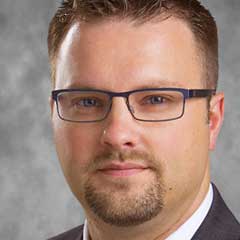
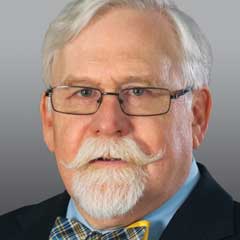
This debate addresses a crucial question in resuscitation science: Should precision ventilation during CPR be a top priority, or does it risk overcomplicating an already high-stakes intervention? Can tailoring ventilation improve outcomes such as time to return of spontaneous circulation (ROSC) and mortality? Or does it lead to cognitive overload, distractions from critical tasks, and over-reliance on technology, where mastering the basics may be more effective than adding layers of complexity? Attendees will gain valuable insights into this issue as two experts present opposing views supported by evidence and clinical experience.
6:00 p.m.–9:00 p.m. | North Ballroom | General
Sputum Bowl Finals
Show description
Since 1978, the Sputum Bowl has been a cornerstone of our annual Congress meetings. Join us to witness teams from across the U.S. vie for the prestigious prize and the ultimate bragging rights. It’s a thrilling event to both participate in and witness!
Thank you to our sponsor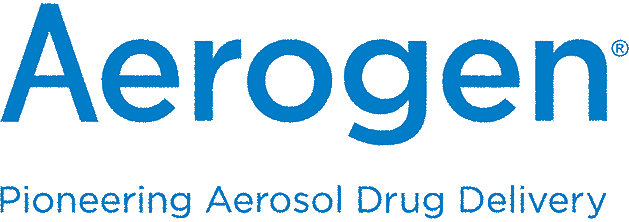
There are no sessions that match your display preferences.
